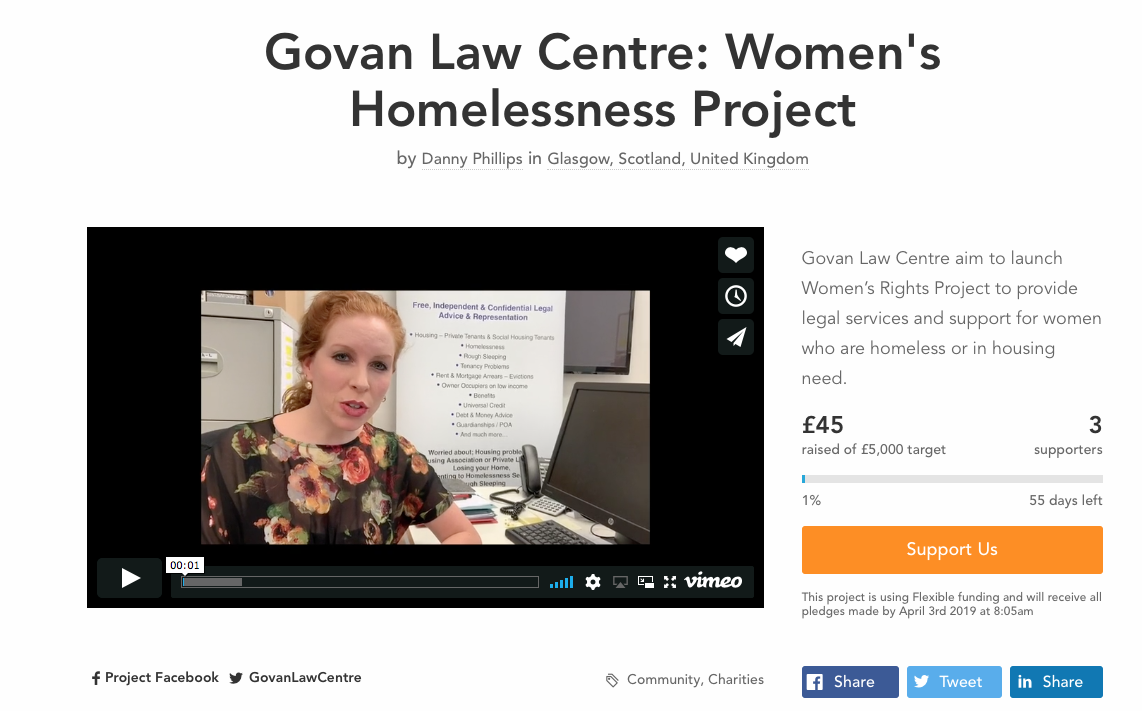 Govan Law Centre (GLC) has welcomed new actions announced today by the First Minister to further tackle rough sleeping this winter. The actions were recommended by the Scottish Government’s Homelessness and Rough Sleeping Action Group (HARSAG).
Govan Law Centre (GLC) has welcomed new actions announced today by the First Minister to further tackle rough sleeping this winter. The actions were recommended by the Scottish Government’s Homelessness and Rough Sleeping Action Group (HARSAG).Today's announcement is backed by an initial £328,000 worth of investment from government and group members, including an additional caseworker/solicitor in Glasgow provided by Govan Law Centre.
Measures include increasing emergency accommodation and support in areas with the greatest numbers of rough sleepers, making personal budgets available to front line workers to meet immediate housing needs, and supporting greater use of the emergency Nightstop service.
HARSAG member, and GLC's Principal Solicitor, Mike Dailly said: "No-one should have to sleep rough this winter and these additional resources will make a real difference. All public and third sector agencies have a part to play this winter if we are to realise the ambition of making rough sleeping rare and unnecessary in Scotland. This is a key step towards delivering the First Minister’s commitment to eradicating rough sleeping in Scotland".
 Further details of the new actions for this winter are available here, and include:
Further details of the new actions for this winter are available here, and include:- Increased emergency accommodation in Edinburgh, and increased outreach capacity in Edinburgh, Glasgow, and Aberdeen
- Multi-agency partnership working boosted, adopting ‘by name lists’ and empowering front line workers through direct access to services and dedicated accommodation
- Making personal budgets and/or flexible emergency fund available for front line staff to employ where maximum flexibility is required to meet immediate housing needs
- At times of extreme weather, ensure flexible provision is available in Edinburgh and Glasgow for anyone who will not use winter night shelters, despite all efforts
- Maximise use of Nightstop – which provide young people with emergency accommodation for up to 2 weeks in the homes of approved volunteers – in Edinburgh and support implementation in Glasgow by January 2018



















